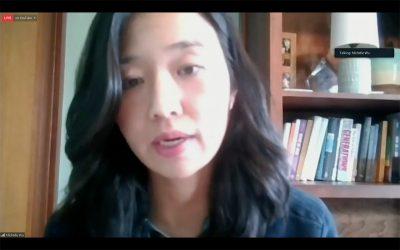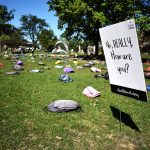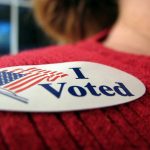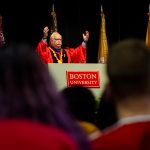The Boston City Council sent an ordinance to extend paid sick leave for city workers taking the COVID-19 vaccine to the Government Operations Committee during Wednesday’s meeting.

The paid sick benefit would cover three working days. City workers would be allowed leave at any point during the two days following a COVID-19 vaccination — which applies to the first and second dose — and compensated fully for the time away, according to the ordinance proposed by City Councilor Michelle Wu.
“All employees of the City of Boston are eligible for this COVID-19 vaccine paid sick leave, regardless of the duration of their employment,” Wu wrote in the ordinance.
Extending paid sick leave may increase the rate of vaccinations among Boston residents, according to the ordinance.
COVID-19 vaccines can cause side effects such as headaches and fever. Granting employees paid time off may increase their likelihood to get vaccinated, according to the ordinance.
The extension of paid sick leave to workers during the 2009 H1N1 outbreak increased their likelihood of receiving an influenza shot, according to a 2018 study conducted by researchers from the U.S. Centers for Disease Control and Prevention.
“Nationwide, more than one-third of the civilian workforce lacks access to any form of paid sick leave, and low-income workers and workers of color are particularly likely to hold jobs that do not offer employee benefits,” the ordinance states.
This measure for paid sick leave would be necessary for fostering trust in medically disenfranchised communities of color by offering accommodations for any side effects of the vaccine, according to the ordinance.
Wu said at the meeting Boston must build trust within communities about the vaccine’s safety to ensure all Bostonians are safe and healthy, which means being transparent about the side effects the vaccine may induce.
“We from the city level should be modeling what we are encouraging other employers and other parts of the community to do,” Wu said. “We should make it possible to accommodate and mitigate the burden of these side effects however possible.”
Wu added that workers can use their time away to rest and recover from any side effects in the days following a vaccination.
“We can use our voice and our example to make sure that everybody is protecting our community as quickly as possible and lifting each other up in the process,” she said.
City Councilor Julia Mejia said at the meeting Boston must start implementing rules and regulations to ensure residents’ safety and include advocates in these conversations.
“I look forward to sitting in and following alongside closely as we discuss this ordinance to see what could be done to make it even stronger and more effective,” Mejia said.
Councilor Ed Flynn, who added his name in support, stressed the importance of providing medical information to immigrants to encourage them to take the vaccine.
“Many of them may not be on social media, but we have to expand our outreach to our immigrant neighbors,” Flynn said, “to make sure that we reach them with a positive message about vaccinations.”
Councilor Michael Flaherty also added his name, and said prominent hospitals and medical centers in Boston are working in partnership with the city government on vaccine rollout.
“It’s up to us to make sure that we’re looking after our elders, making sure that they get the vaccine,” Flaherty said. “Obviously, as we continue to do the rollout and the age limit drops, make sure that the word gets out there in as many different languages as possible.”
Wu’s ordinance was sent out to the Committee of Government Operations for review. All but Councilor Frank Baker — who was not present at the meeting — added their names.
Tali Robbins, policy director for Wu’s office, said the ordinance would cover the roughly 18,000 city employees, who work in different occupations all over the city.
She added that the ordinance would not change the state’s already established vaccine priority order.
“This is just about making sure that fear or anxiety or concerns about the side effects don’t serve as a barrier to getting the vaccine,” Robbins said.
Three working days total can be taken off at workers’ discretion, allowing them to take a day off for their first injection and two following their second — when people tend to feel side effects — Robbins said.
“While this only obviously applies to city employees, we hope to serve as an example for all other employers in the city of Boston to follow that lead,” Robbins said. “And make sure that we’re making all combinations possible for workers in the city to be able to access the vaccine quickly.”
With the ordinance now out of City Council’s hands, the next step to its passage is a hearing with the Committee of Government Operations headed by Councilor Lydia Edwards, Robbins said.
Edwards added her name to the ordinance at the meeting.
“It’ll follow the same process as everything else,” Robbins said, “but we hope to move it forward as quickly as we can.”














